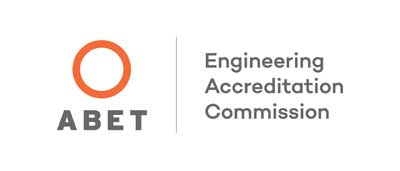Accredited by the Engineering Accreditation Commission(s) of ABET, http://www.abet.org, under the General Criteria and the Bioengineering and Biomedical and Similarly Named Engineering Programs Program Criteria.

Dream of helping people live longer, better lives through engineering? The growing field of bioengineering lets you apply engineering concepts to challenges that directly affect our health and well-being.
Bioengineering is designed to bridge the gap between the life sciences and physical sciences by applying engineering concepts, methods, and techniques to biology and medicine. An understanding of fundamental physiological processes using engineering methodology requires a broad background in basic engineering, sciences, and mathematics.
Biomedical engineers may design instruments, devices, and software; bring together knowledge from many technical sources to develop new procedures; or conduct research needed to solve clinical problems. In industry, they may create products that require an in-depth understanding of living systems and technology. They frequently work in research and development or in quality assurance.
Curriculum
Bachelor of Science in Bioengineering students concentrate in one of three areas: Biomechanics, Bioelectricity, or Pre-Med. You'll first build a foundation in universal engineering theories, mathematics, and the physical and life sciences, before moving on to courses in your area of interest:
Biomechanics
- kinetics
- fluid mechanics
- heat transfer
Pre-Medicine
- chemistry
- biochemistry
- genetics
There is also a Bachelor of Engineering in Engineering Science with a biomedical focus.
Learn from Experts
Engage in lively, challenging discussions and learn from faculty mentors who are scholars in fields such as tissue engineering, regenerative medicine, nanotechnology, and more.
An advisory board of working professionals also share their expertise and guidance with students, while the Executive Speaker Series features top industry leaders discussing a broad range of timely engineering topics.

The Student Experience
Explore potential career paths, get real-world insights, develop valuable workplace skills, and build a network of professional contacts through internships, research opportunities, and full-time professional work experiences.
Students have interned at:
- NASA
- Disney
- Lockheed Martin
- Toyota
- Northrup Grumman
- Bohler Engineering
- Estee Lauder
- Globecomm Systems
Earn while you learn:
- The DeMatteis Co-op Program offers a full-time, six-to-eight month paid position with one of more than 200 companies, providing valuable professional experience before you graduate.
- The Advanced Summer Program in Research (ASPiRe) lets you work on a research project, with a stipend, under the guidance of a faculty mentor. More than two dozen undergraduates have had their work published in scholarly journals in the last few years.
The Outlook
Demand is growing for biomedical engineers. With our comprehensive program, you’ll be ready to pursue either a career right after graduation or advanced study.
7%
Projected job growth by 2026
$97K
Average salary for bioengineers in NY region
Career Potential in Bioengineering
The median annual wage for biomedical engineers was $88,550 in May 2018. The median wage is the wage at which half the workers in an occupation earned more than that amount and half earned less. The lowest 10% earned less than $51,890, and the highest 10% earned more than $144,350.
In May 2018, the median annual wages for biomedical engineers in the top industries in which they worked were as follows:
| Navigational, measuring, electromedical, and control instruments manufacturing | $101,960 |
| Research and development in the physical, engineering, and life sciences | $93,250 |
| Medical equipment and supplies manufacturing | $83,450 |
Biomedical engineers usually work full time on a normal schedule. However, as with employees in almost any engineering occupation, biomedical engineers occasionally may have to work additional hours to meet the needs of patients, managers, colleagues, and clients. Some biomedical engineers work more than 40 hours per week.
Bureau of Labor Statistics, U.S. Department of Labor, Occupational Outlook Handbook, Biomedical Engineers, on the internet at https://www.bls.gov/ooh/architecture-and-engineering/biomedical-engineers.htm (visited November 21, 2019).
Alumni Success
DeMatteis School engineering graduates enjoy considerable success upon graduation, whether they obtain positions at prestigious companies or pursue advanced study at top graduate schools.
Recent alumni work at companies such as:
- Ford Motor Company
- General Dynamics Electric Boat
- High Rise Engineering
- Kintetsu World Express
- Leviton Manufacturing
- Lockheed Martin
- Norfolk Naval Shipyard
- Northwell Health
- NYU Langone Medical Center
- Pacifico Engineering, PC
- Unisys
- Weill Cornell Medical Center
Those pursuing graduate degrees study at:
- Columbia University
- Cornell University
- NYU
- Princeton
- Stanford
- University of Pennsylvania
- University of Pittsburgh
State of the Art Learning Spaces
Take advantage of an extraordinary array of sophisticated laboratory facilities, including the Cell and Tissue Engineering Lab, the Ultrasound Research Lab, and 16 other engineering and computer science laboratories.

Top Ranked
The engineering program at the Fred DeMatteis School of Engineering and Applied Science ranks #33 among 220 non-PhD granting schools in U.S. News & World Report's 2021 Best Colleges list.
Questions about the program?
Contact Us
Richard Puerzer, chair
Dept. of Engineering
richard.j.puerzer@hofstra.edu
516-463-6019